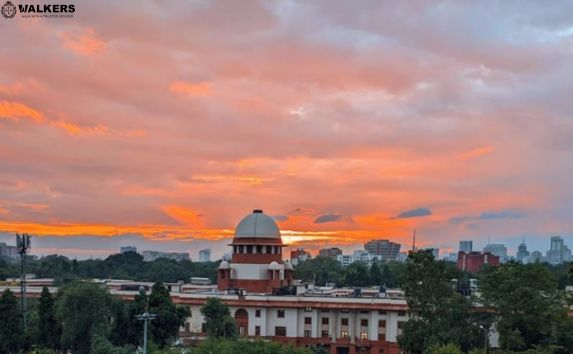


In a recent development, the Supreme Court has come to the rescue of an auction purchaser who was subjected to forfeiture of his deposit by the bank. The bank had invoked Rule 9(5) of Security Interest (Enforcement) Rules, 2002, which allows forfeiture of the deposit amount in case of non-payment of the balance bid amount by the purchaser within the specified time. However, the apex court observed that the bank had failed to notify the purchaser of the challenge that was pending in the Debts Recovery Tribunal against the auction purchase. In light of this, the court has directed the bank to refund the deposit amount to the purchaser.
In a recent ruling, the Supreme Court has stated that Rule 9(5) of SARFAESI Rules cannot be invoked in a case where the auction purchaser was not informed of the pending proceedings before the DRT at the time of auction or even thereafter. The court held that the purchaser had a genuine defense in claiming that he was never informed of the ongoing legal proceedings against the borrower. The court further emphasized that it is the duty of the bank to provide all relevant information to the bidders during the auction process to ensure transparency. The court also noted that the market value of the property can differ significantly from the distressed value at an auction, and it is imperative that all parties involved have complete information. Therefore, the court has directed the bank to refund the deposit amount to the purchaser.
Background:
The Punjab National Bank (referred to as "Respondent/Bank") recently initiated recovery proceedings against its borrower (Third Respondent) under the Securitisation and Reconstruction of Financial Assets and Enforcement of Security Interest Act, 2002 ("SARFAESI Act, 2002").
In June 2013, the Bank issued a notice to auction the borrower's property with a reserve price of Rs.1.19 crores. The auction was won by Mr. Mohd. Shariq (referred to as "Appellant"), who submitted the highest bid of Rs. 2.01 crores and paid the earnest money amount of Rs.11.19 lakhs. The auction was finalized on 26.07.2013, and the Appellant deposited 25% of the bid amount (Rs.38.35 crores) on 27.06.2013, with a total payment of Rs. 50,25,000/-.
During the auction proceedings, the borrower approached the Debt Recovery Tribunal ("DRT") to challenge the auction notice. On 26.07.2013, the DRT allowed the Bank to proceed with the auction but kept the confirmation of the sale on hold until further orders.
On 18.10.2013, the Bank demanded the balance bid amount from Mr. Mohd. Shariq (referred to as "Appellant") since the DRT had rejected the interim relief. The Appellant responded by stating that he would release the balance amount once the DRT decides the matter pending before it. However, the Bank later informed the Appellant that the earnest money would be forfeited under Rule 9(5) of SARFAESI Rules, 2002, if the balance amount is not paid within the stipulated time.
After the re-auction of the property, the Appellant filed a writ petition in the High Court seeking direction to the Bank to either execute a sale deed in the Appellant's favour or refund the money deposited by the Appellant. The High Court directed the Appellant to deposit the balance bid amount and subsequently set aside the re-auction and directed the Bank to execute the sale deed in favour of the Appellant. However, the Division Bench of the High Court upheld the re-auction and ordered the Bank to return the bid amount of Rs. 1.77 crores received from the Appellant. The High Court granted liberty to the Appellant to initiate independent proceedings before the competent forum for recovery of the forfeited amount. The Appellant then appealed to the Supreme Court, arguing that although the Appellant is qualified to claim the forfeited amount, the High Court left it to the Appellant to avail the remedy which the law permits.
Verdict:
The Supreme Court bench consisting of Justice Ajay Rastogi and Justice Bela M. Trivedi ruled that the High Court was wrong in directing the Appellant to avail other remedial mechanisms for recovery of the undisputed amount of the forfeited money. The bench stated that as there was no dispute on the facts of the case, the Division Bench committed a manifest error in not exercising its power under Article 226 of the Constitution and instead of resolving the dispute, permitted the parties to have a second innings in reference to the dispute which had already been settled. The bench allowed the appeal and directed the Bank to return the amount of Rs. 50.25 lakhs to the Appellant. However, the Court refused to order the grant of interest to the Appellant considering the delay in filing the appeal.
Click Here to: Download/View Related File
TAGS: auction SARFAESI Act recovery bank borrower bid forfeiture high court division bench supreme court Supreme Court Appellant Bank auction SARFAESI Act recovery DRT High Court forfeited amount..